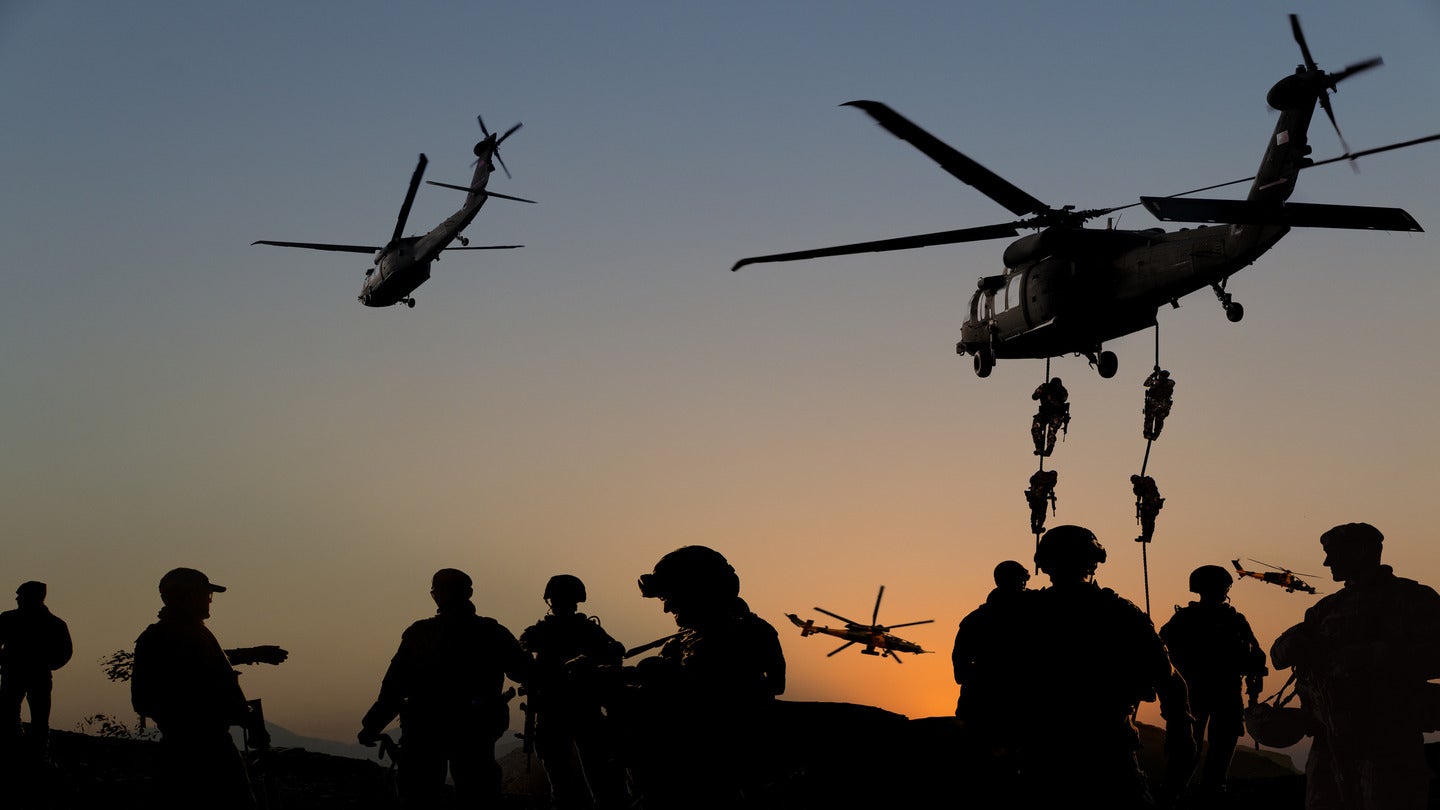
Two years ago to the day, Taliban soldiers swept through Kabul, capturing Afghanistan’s capital city in the culmination of an insurgency against the US-backed government which began in 2001.
More than 170,000 casualties and $2.3trn expenditure later, it marked the end of the War in Afghanistan with an outright victory for the Taliban.

Discover B2B Marketing That Performs
Combine business intelligence and editorial excellence to reach engaged professionals across 36 leading media platforms.
On July 30 and 31, representatives from the US and Taliban met for the first time since the takeover. In Doha, officials discussed narcotics restrictions, economic challenges, and steps towards the recognition of the Taliban government, Al Jazeera reported.
Increased relations between Kabul and Washington mark a significant U-turn in US diplomatic policy towards what President Biden called a “God-forsaken place” entrenched in “terrorism”.
While previous US-Afghanistan talks had lacked progress, the US State Department’s engagement with the Taliban has been criticised as legitimising a regime branded as “the least peaceful country in the world” by security and peace think tank Vision of Humanity.
Humanitarian crisis, economic woes
Despite initially promising to uphold women’s rights and press freedom, the Taliban regime has persecuted minority groups and violently suppressed protests amid a slew of disappearances, arrests, torture and extrajudicial executions.

US Tariffs are shifting - will you react or anticipate?
Don’t let policy changes catch you off guard. Stay proactive with real-time data and expert analysis.
By GlobalData“A year ago, the Taliban made public commitments to protect and promote human rights,” said Yamini Mishra, Regional Director at Amnesty International. “Yet the speed with which they are dismantling 20 years of human rights gains is staggering. Any hopes of change have quickly evaporated as the Taliban seek to govern through violent repression with full impunity.”
As of July 2023, five million Afghans had fled the country and over three million had been internally displaced, according to the UN’s refugee agency. Malnutrition has soared, the economy has plummeted and hundreds of thousands of jobs have been lost. Afghanistan’s crisis is now at a critical level, with 15.3 million people – over 1/3 of the Afghan population – facing acute food insecurity.
This dire humanitarian situation has been compounded by reluctance among foreign companies to invest into Taliban-ruled Afghanistan.
GlobalData’s ‘Greenfield Foreign Direct Investment into Asia-Pacific 2022’ report reveals that overseas company investment into the North and Central Asia sub-region is already the lowest across the Asia-Pacific region.
Foreign direct investment (FDI) into Afghanistan itself has declined sharply due to both the Covid-19 pandemic and the Taliban’s takeover. FDI flows into Afghanistan have plummeted from $119m in 2018 to $21m in 2021, according to UNCTAD’S World Investment Report.
The US defence industry’s gravy train
During its 20-year presence in Afghanistan, the US invested trillions of dollars’ worth of military aid on reconstruction projects and strengthening the Afghan National Defence and Security Forces (ANDSF) against Taliban insurgency.
US defence contractors saw profits skyrocket, enlisted without reserve to supply drones, fuel, trucks, planes, helicopters, ships, weapons and munitions – on top of support services from catering and construction to IT and logistics.
Defence stocks outperformed the stock market overall by nearly 60%. Revenue injections enabled the “Big Five” – Lockheed Martin, Boeing, General Dynamic, Raytheon and Northrop Grumman – to consolidate the industry through acquisitions of second tier manufacturers, including Hughes Aircraft and McDonnell Douglas, and to spend over $2.4bn lobbying US Congress since 2001.
The legacy of such extreme spending is not limited to financial gain among defence companies. Many of the US-manufactured and US-supplied guns, rockets and drones left behind in Afghanistan are now in the Taliban’s possession.
“These weapons are potentially in the service of crushing human rights,” said Aref Dostyar, Afghanistan’s former consul general in Los Angeles. Particularly symbolic were images of the Taliban parading through the streets of Kabul, Kandahar and Herat atop some of the 23,825 armoured Humvees the US left behind.
International engagement with the Taliban regime
Such scenes are undeniably humiliating for the US State Department, but are unlikely to be a predominant factor driving officials back to the Taliban-chaired negotiating table.
No country has formally recognised the Taliban since its return to power. But precedent for any such recognition, slight or significant, will be set by the US government – which is displaying increasing willingness to negotiate, as per the talks in Qatar’s capital at the end of July. Formal recognition is some way off, but legitimisation of the Taliban regime has laid the foundations for Afghanistan’s reintegration efforts.
Central Asian states have been at the forefront of these efforts regarding regional trade and security. Aside from proposals for a trans-Afghan railway line, Kazakhstan welcomed a Taliban delegation to a business forum on August 3. The two nations signed deals to supply grain and flour to Afghanistan worth $200m.
The stance of more influential states has been more indicative of the global trend in regime recognition. While Europe, the UN and USA have stipulated that recognition is conditional on compliance with human rights, Russia and China have engaged diplomatically with Kabul without explicit declarations of recognition.
Beijing has eyes for Afghanistan’s vast reserves of critical rare earth minerals. Chinese companies have invested in Afghanistan’s lithium sector, and have begin drilling for oil in the Amu Darya basin following a governmental deal in January 2023.
According to thinktank Brookings Institution, the likeliest outcome is for the US to engage in extended negotiations with the Taliban, using “recognition as a carrot to urge the Taliban to undertake certain fundamental reforms”.
Perhaps 20 unsuccessful years of deploying the stick in Afghanistan has left the US government with little choice – but efforts to discursively placate Taliban-US relations must take care not to legitimise a regime responsible for unprecedented human suffering.





